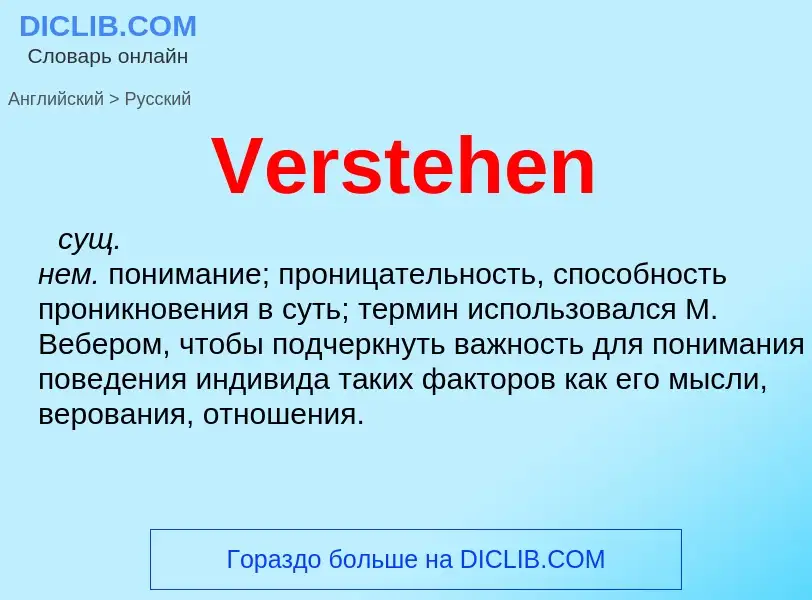Tradução e análise de palavras por inteligência artificial ChatGPT
Nesta página você pode obter uma análise detalhada de uma palavra ou frase, produzida usando a melhor tecnologia de inteligência artificial até o momento:
- como a palavra é usada
- frequência de uso
- é usado com mais frequência na fala oral ou escrita
- opções de tradução de palavras
- exemplos de uso (várias frases com tradução)
- etimologia
Verstehen - tradução para russo
Wikipédia
Verstehen (German pronunciation: [fɛɐˈʃteːən], lit. transl. "to understand"), in the context of German philosophy and social sciences in general, has been used since the late 19th century – in English as in German – with the particular sense of the "interpretive or participatory" examination of social phenomena. The term is closely associated with the work of the German sociologist Max Weber, whose antipositivism established an alternative to prior sociological positivism and economic determinism, rooted in the analysis of social action. In anthropology, Verstehen has come to mean a systematic interpretive process in which an outside observer of a culture attempts to relate to it and understand others.
Verstehen is now seen as a concept and a method central to a rejection of positivist social science (although Weber appeared to think that the two could be united). Verstehen refers to understanding the meaning of action from the actor's point of view. It is entering into the shoes of the other, and adopting this research stance requires treating the actor as a subject, rather than an object of your observations. It also implies that unlike objects in the natural world human actors are not simply the product of the pulls and pushes of external forces. Individuals are seen to create the world by organizing their own understanding of it and giving it meaning. To do research on actors without taking into account the meanings they attribute to their actions or environment is to treat them like objects.

